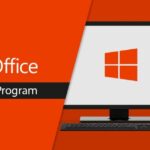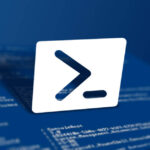Configuration Manager Query Collection List. All queries were tested.
Configuration Manager Clients Collections
Clients not approved
select SMS_R_SYSTEM.ResourceID, SMS_R_SYSTEM.ResourceType, SMS_R_SYSTEM.Name, SMS_R_SYSTEM.SMSUniqueIdentifier,
SMS_R_SYSTEM.ResourceDomainORWorkgroup, SMS_R_SYSTEM.Client from SMS_R_System
inner join SMS_CM_RES_COLL_SMS00001 on SMS_CM_RES_COLL_SMS00001.ResourceId = SMS_R_System.ResourceId
where SMS_CM_RES_COLL_SMS00001.IsApproved= "0"Clients requiring a reboot
select SMS_R_SYSTEM.ResourceID,SMS_R_SYSTEM.ResourceType,SMS_R_SYSTEM.Name,
SMS_R_SYSTEM.SMSUniqueIdentifier,SMS_R_SYSTEM.ResourceDomainORWorkgroup,
SMS_R_SYSTEM.Client from SMS_R_System join sms_combineddeviceresources on
sms_combineddeviceresources.resourceid = sms_r_system.resourceid
where sms_combineddeviceresources.clientstate != 0All SCCM client computers with less than 5GB free disk space on C:
select SMS_R_SYSTEM.ResourceID,SMS_R_SYSTEM.ResourceType,SMS_R_SYSTEM.Name,
SMS_R_SYSTEM.SMSUniqueIdentifier,SMS_R_SYSTEM.ResourceDomainORWorkgroup,
SMS_R_SYSTEM.Client from SMS_R_System inner join SMS_G_System_LOGICAL_DISK on SMS_G_System_LOGICAL_DISK.ResourceID = SMS_R_System.ResourceId
where SMS_G_System_LOGICAL_DISK.DeviceID = "C:" and SMS_G_System_LOGICAL_DISK.FreeSpace <= 5000All computer objects with the client installed in the specific site “21”
select SMS_R_System.ResourceId, SMS_R_System.ResourceType, SMS_R_System.Name, SMS_R_System.SMSUniqueIdentifier, SMS_R_System.ResourceDomainORWorkgroup, SMS_R_System.Client from SMS_R_System where SMS_R_System.ADSiteName = "21" and SMS_R_System.Client = 1All computers without an SCCM client
select SMS_R_System.ResourceId, SMS_R_System.ResourceType, SMS_R_System.Name, SMS_R_System.SMSUniqueIdentifier, SMS_R_System.ResourceDomainORWorkgroup, SMS_R_System.Client from SMS_R_System where SMS_R_System.Client = "0"Active Directory Collections
Based on OU
Replace “domain.local/OU/OU” with your own domain name and OU that you need a collection of.
select * from SMS_R_System where LOWER(SMS_R_System.SystemOUName) = "domain.local/OU/OU"Based on many nested OU
In case you have many repeated OU structure (one OU name exist in many other OU, for example Workstations). Replace “domain.local/%/Workstations” with your own domain name and OU that you need a collection of.
select * from SMS_R_System where SMS_R_System.SystemOUName like "domain.local/%/Workstations"Based on domain membership.
Replace “domain” with the NetBIOS name of your domain.
select * from SMS_R_System where SMS_R_System.ResourceDomainORWorkgroup = "domain"Workstations Collections
All Workstations
select SMS_R_SYSTEM.ResourceID, SMS_R_SYSTEM.ResourceType, SMS_R_SYSTEM.Name, SMS_R_SYSTEM.SMSUniqueIdentifier,SMS_R_System.OperatingSystemNameandVersion,
SMS_R_SYSTEM.ResourceDomainORWorkgroup, SMS_R_SYSTEM.Client
from SMS_R_System where SMS_R_System.OperatingSystemNameandVersion like "Microsoft Windows NT Workstation%"All Windows 10
select SMS_R_SYSTEM.ResourceID, SMS_R_SYSTEM.ResourceType, SMS_R_SYSTEM.Name, SMS_R_SYSTEM.SMSUniqueIdentifier,
SMS_R_SYSTEM.ResourceDomainORWorkgroup, SMS_R_SYSTEM.Client from SMS_R_System
where SMS_R_System.OperatingSystemNameandVersion like "Microsoft Windows NT Workstation 10.0%"All Windows 10 November 2019 Update 19H2 (1909)
select SMS_R_SYSTEM.ResourceID,SMS_R_SYSTEM.ResourceType,SMS_R_SYSTEM.Name,SMS_R_SYSTEM.SMSUniqueIdentifier,SMS_R_SYSTEM.ResourceDomainORWorkgroup,SMS_R_SYSTEM.Client from SMS_R_System inner join SMS_G_System_OPERATING_SYSTEM on SMS_G_System_OPERATING_SYSTEM.ResourceID = SMS_R_System.ResourceId where SMS_G_System_OPERATING_SYSTEM.BuildNumber = "18363"All Windows 10 May 2019 Update 19H1 (1903)
select SMS_R_System.ResourceId, SMS_R_System.ResourceType, SMS_R_System.Name, SMS_R_System.SMSUniqueIdentifier, SMS_R_System.ResourceDomainORWorkgroup, SMS_R_System.Client from SMS_R_System inner join SMS_G_System_OPERATING_SYSTEM on SMS_G_System_OPERATING_SYSTEM.ResourceID = SMS_R_System.ResourceId where SMS_G_System_OPERATING_SYSTEM.BuildNumber = "18362"All Windows 10 October 2018 Update (1809)
select SMS_R_System.ResourceId, SMS_R_System.ResourceType, SMS_R_System.Name, SMS_R_System.SMSUniqueIdentifier, SMS_R_System.ResourceDomainORWorkgroup, SMS_R_System.Client from SMS_R_System inner join SMS_G_System_OPERATING_SYSTEM on SMS_G_System_OPERATING_SYSTEM.ResourceID = SMS_R_System.ResourceId where SMS_G_System_OPERATING_SYSTEM.BuildNumber = "17763"All Windows 10 April 2018 Update (1803)
select SMS_R_System.ResourceId, SMS_R_System.ResourceType, SMS_R_System.Name, SMS_R_System.SMSUniqueIdentifier, SMS_R_System.ResourceDomainORWorkgroup, SMS_R_System.Client from SMS_R_System inner join SMS_G_System_OPERATING_SYSTEM on SMS_G_System_OPERATING_SYSTEM.ResourceID = SMS_R_System.ResourceId where SMS_G_System_OPERATING_SYSTEM.BuildNumber = "17134"All Windows 10 Fall Creators Update (1709)
select SMS_R_System.ResourceId, SMS_R_System.ResourceType, SMS_R_System.Name, SMS_R_System.SMSUniqueIdentifier, SMS_R_System.ResourceDomainORWorkgroup, SMS_R_System.Client from SMS_R_System inner join SMS_G_System_OPERATING_SYSTEM on SMS_G_System_OPERATING_SYSTEM.ResourceID = SMS_R_System.ResourceId where SMS_G_System_OPERATING_SYSTEM.BuildNumber = "16299"All Windows 10 Creators Update (1703)
select SMS_R_System.ResourceId, SMS_R_System.ResourceType, SMS_R_System.Name, SMS_R_System.SMSUniqueIdentifier, SMS_R_System.ResourceDomainORWorkgroup, SMS_R_System.Client from SMS_R_System inner join SMS_G_System_OPERATING_SYSTEM on SMS_G_System_OPERATING_SYSTEM.ResourceID = SMS_R_System.ResourceId where SMS_G_System_OPERATING_SYSTEM.BuildNumber = "15063" All Windows 10 Aniversary Update (1607)
select SMS_R_System.ResourceId, SMS_R_System.ResourceType, SMS_R_System.Name, SMS_R_System.SMSUniqueIdentifier, SMS_R_System.ResourceDomainORWorkgroup, SMS_R_System.Client from SMS_R_System inner join SMS_G_System_OPERATING_SYSTEM on SMS_G_System_OPERATING_SYSTEM.ResourceID = SMS_R_System.ResourceId where SMS_G_System_OPERATING_SYSTEM.BuildNumber = "14393"All Windows 10 November Update (1511)
select SMS_R_System.ResourceId, SMS_R_System.ResourceType, SMS_R_System.Name, SMS_R_System.SMSUniqueIdentifier, SMS_R_System.ResourceDomainORWorkgroup, SMS_R_System.Client from SMS_R_System inner join SMS_G_System_OPERATING_SYSTEM on SMS_G_System_OPERATING_SYSTEM.ResourceID = SMS_R_System.ResourceId where SMS_G_System_OPERATING_SYSTEM.BuildNumber = "10586"All Windows 10 RTM (1507)
select SMS_R_System.ResourceId, SMS_R_System.ResourceType, SMS_R_System.Name, SMS_R_System.SMSUniqueIdentifier, SMS_R_System.ResourceDomainORWorkgroup, SMS_R_System.Client from SMS_R_System inner join SMS_G_System_OPERATING_SYSTEM on SMS_G_System_OPERATING_SYSTEM.ResourceID = SMS_R_System.ResourceId where SMS_G_System_OPERATING_SYSTEM.BuildNumber = "10240"All Windows 8.1
select SMS_R_SYSTEM.ResourceID, SMS_R_SYSTEM.ResourceType, SMS_R_SYSTEM.Name, SMS_R_SYSTEM.SMSUniqueIdentifier,
SMS_R_SYSTEM.ResourceDomainORWorkgroup, SMS_R_SYSTEM.Client from SMS_R_System
where SMS_R_System.OperatingSystemNameandVersion like "select SMS_R_SYSTEM.ResourceID, SMS_R_SYSTEM.ResourceType, SMS_R_SYSTEM.Name, SMS_R_SYSTEM.SMSUniqueIdentifier,
SMS_R_SYSTEM.ResourceDomainORWorkgroup, SMS_R_SYSTEM.Client from SMS_R_System
where SMS_R_System.OperatingSystemNameandVersion like "Microsoft Windows NT Workstation 6.3%"All Windows 7
This query needs to be limited to the All Workstations collection to work.
select SMS_R_SYSTEM.ResourceID, SMS_R_SYSTEM.ResourceType, SMS_R_SYSTEM.Name, SMS_R_SYSTEM.SMSUniqueIdentifier,
SMS_R_SYSTEM.ResourceDomainORWorkgroup, SMS_R_SYSTEM.Client from SMS_R_System
where SMS_R_System.OperatingSystemNameandVersion like "Microsoft Windows NT Workstation 6.1%"All Windows Vista
This query needs to be limited to the All Workstations collection to work
select SMS_R_SYSTEM.ResourceID, SMS_R_SYSTEM.ResourceType, SMS_R_SYSTEM.Name, SMS_R_SYSTEM.SMSUniqueIdentifier,
SMS_R_SYSTEM.ResourceDomainORWorkgroup, SMS_R_SYSTEM.Client from SMS_R_System
where SMS_R_System.OperatingSystemNameandVersion like "Microsoft Windows NT Workstation 6.0%"All Linux
Select SMS_R_System.ClientEdition from SMS_R_System where SMS_R_System.ClientEdition = 13All Mac OS
select SMS_R_SYSTEM.ResourceID,SMS_R_SYSTEM.ResourceType,SMS_R_SYSTEM.Name,SMS_R_SYSTEM.SMSUniqueIdentifier,
SMS_R_SYSTEM.ResourceDomainORWorkgroup,SMS_R_SYSTEM.Client
from SMS_R_System where SMS_R_System.OperatingSystemNameandVersion like "Mac%"Based on the computer manufacturer model.
In this example, we get all Dell workstations.
select distinct SMS_G_System_COMPUTER_SYSTEM.Manufacturer, SMS_G_System_COMPUTER_SYSTEM.Model
from SMS_R_System inner join SMS_G_System_COMPUTER_SYSTEM on SMS_G_System_COMPUTER_SYSTEM.ResourceID = SMS_R_System.ResourceId
where SMS_G_System_COMPUTER_SYSTEM.Model = "Dell"Server Collections
All Domain Controllers
This query requires that the SCCM client is installed and hardware inventory is turned on.
select * from SMS_R_System inner join SMS_G_System_COMPUTER_SYSTEM on SMS_G_System_COMPUTER_SYSTEM.ResourceId = SMS_R_System.ResourceId
where SMS_G_System_COMPUTER_SYSTEM.Roles like "%Domain_Controller%"All Servers
select SMS_R_SYSTEM.ResourceID, SMS_R_SYSTEM.ResourceType, SMS_R_SYSTEM.Name, SMS_R_SYSTEM.SMSUniqueIdentifier,SMS_R_System.OperatingSystemNameandVersion,
SMS_R_SYSTEM.ResourceDomainORWorkgroup, SMS_R_SYSTEM.Client
from SMS_R_System where SMS_R_System.OperatingSystemNameandVersion like "Microsoft Windows NT Server%"
OR SMS_R_System.OperatingSystemNameandVersion like "Microsoft Windows NT Advanced Server%"or
select SMS_R_SYSTEM.ResourceID,SMS_R_SYSTEM.ResourceType,SMS_R_SYSTEM.Name,SMS_R_SYSTEM.SMSUniqueIdentifier,SMS_R_SYSTEM.ResourceDomainORWorkgroup,SMS_R_SYSTEM.Client from SMS_R_System inner join SMS_G_System_SYSTEM on SMS_G_System_SYSTEM.ResourceId = SMS_R_System.ResourceId where SMS_G_System_SYSTEM.SystemRole = "Server"All Windows 2019 Servers
select SMS_R_SYSTEM.ResourceID,SMS_R_SYSTEM.ResourceType,SMS_R_SYSTEM.Name,SMS_R_SYSTEM.SMSUniqueIdentifier,SMS_R_SYSTEM.ResourceDomainORWorkgroup,SMS_R_SYSTEM.Client from SMS_R_System inner join SMS_G_System_OPERATING_SYSTEM on SMS_G_System_OPERATING_SYSTEM.ResourceID = SMS_R_System.ResourceId where SMS_G_System_OPERATING_SYSTEM.Name like "Microsoft Windows Server 2019 %"All Windows 2016 Servers
select SMS_R_SYSTEM.ResourceID, SMS_R_SYSTEM.ResourceType, SMS_R_SYSTEM.Name, SMS_R_SYSTEM.SMSUniqueIdentifier,SMS_R_System.OperatingSystemNameandVersion,
SMS_R_SYSTEM.ResourceDomainORWorkgroup, SMS_R_SYSTEM.Client
from SMS_R_System where SMS_R_System.OperatingSystemNameandVersion like "Microsoft Windows NT Server 10.0%"
OR SMS_R_System.OperatingSystemNameandVersion like "Microsoft Windows NT Advanced Server 10.0%"All Windows 2012 R2 Servers
select SMS_R_SYSTEM.ResourceID, SMS_R_SYSTEM.ResourceType, SMS_R_SYSTEM.Name, SMS_R_SYSTEM.SMSUniqueIdentifier,SMS_R_System.OperatingSystemNameandVersion,
SMS_R_SYSTEM.ResourceDomainORWorkgroup, SMS_R_SYSTEM.Client
from SMS_R_System where SMS_R_System.OperatingSystemNameandVersion like "Microsoft Windows NT Server 6.3%"
OR SMS_R_System.OperatingSystemNameandVersion like "Microsoft Windows NT Advanced Server 6.3%"All Windows 2012 Servers
select SMS_R_SYSTEM.ResourceID, SMS_R_SYSTEM.ResourceType, SMS_R_SYSTEM.Name, SMS_R_SYSTEM.SMSUniqueIdentifier,SMS_R_System.OperatingSystemNameandVersion,
SMS_R_SYSTEM.ResourceDomainORWorkgroup, SMS_R_SYSTEM.Client
from SMS_R_System where SMS_R_System.OperatingSystemNameandVersion like "Microsoft Windows NT Server 6.2%"
OR SMS_R_System.OperatingSystemNameandVersion like "Microsoft Windows NT Advanced Server 6.2%"All Windows 2008 R2 Servers
select SMS_R_SYSTEM.ResourceID, SMS_R_SYSTEM.ResourceType, SMS_R_SYSTEM.Name, SMS_R_SYSTEM.SMSUniqueIdentifier,SMS_R_System.OperatingSystemNameandVersion,
SMS_R_SYSTEM.ResourceDomainORWorkgroup, SMS_R_SYSTEM.Client
from SMS_R_System where SMS_R_System.OperatingSystemNameandVersion like "Microsoft Windows NT Server 6.1%"
OR SMS_R_System.OperatingSystemNameandVersion like "Microsoft Windows NT Advanced Server 6.1%"All Windows 2008 Servers
select SMS_R_SYSTEM.ResourceID, SMS_R_SYSTEM.ResourceType, SMS_R_SYSTEM.Name, SMS_R_SYSTEM.SMSUniqueIdentifier,SMS_R_System.OperatingSystemNameandVersion,
SMS_R_SYSTEM.ResourceDomainORWorkgroup, SMS_R_SYSTEM.Client
from SMS_R_System where SMS_R_System.OperatingSystemNameandVersion like "Microsoft Windows NT Server 6.0%"
OR SMS_R_System.OperatingSystemNameandVersion like "Microsoft Windows NT Advanced Server 6.0%"SQL Server Collections
All SQL Servers
select * from SMS_R_System inner join SMS_G_System_COMPUTER_SYSTEM on SMS_G_System_COMPUTER_SYSTEM.ResourceID = SMS_R_System.ResourceId
where SMS_G_System_COMPUTER_SYSTEM.Roles like "%SQLServer%"All SQL Server Management Studio installed
select SMS_R_SYSTEM.ResourceID,SMS_R_SYSTEM.ResourceType,SMS_R_SYSTEM.Name,SMS_R_SYSTEM.SMSUniqueIdentifier,SMS_R_SYSTEM.ResourceDomainORWorkgroup,SMS_R_SYSTEM.Client from SMS_R_System inner join SMS_G_System_INSTALLED_SOFTWARE on SMS_G_System_INSTALLED_SOFTWARE.ResourceID = SMS_R_System.ResourceId where SMS_G_System_INSTALLED_SOFTWARE.ProductName like "Microsoft SQL Server Management Studio %"All SQL Server Management Studio v17 installed
select SMS_R_SYSTEM.ResourceID,SMS_R_SYSTEM.ResourceType,SMS_R_SYSTEM.Name,SMS_R_SYSTEM.SMSUniqueIdentifier,SMS_R_SYSTEM.ResourceDomainORWorkgroup,SMS_R_SYSTEM.Client from SMS_R_System inner join SMS_G_System_INSTALLED_SOFTWARE on SMS_G_System_INSTALLED_SOFTWARE.ResourceID = SMS_R_System.ResourceId where SMS_G_System_INSTALLED_SOFTWARE.ProductName like "Microsoft SQL Server Management Studio - 17%"All SQL Servers 2017
select SMS_R_SYSTEM.ResourceID,SMS_R_SYSTEM.ResourceType,SMS_R_SYSTEM.Name,SMS_R_SYSTEM.SMSUniqueIdentifier,SMS_R_SYSTEM.ResourceDomainORWorkgroup,SMS_R_SYSTEM.Client from SMS_R_System inner join SMS_G_System_INSTALLED_SOFTWARE on SMS_G_System_INSTALLED_SOFTWARE.ResourceId = SMS_R_System.ResourceId where SMS_G_System_INSTALLED_SOFTWARE.ProductName = "Microsoft SQL Server 2017"All SQL Servers 2016
select SMS_R_System.ResourceId, SMS_R_System.ResourceType,
SMS_R_System.Name, SMS_R_System.SMSUniqueIdentifier, SMS_R_System.ResourceDomainORWorkgroup,
SMS_R_System.Client from SMS_R_System inner join SMS_G_System_INSTALLED_SOFTWARE on SMS_G_System_INSTALLED_SOFTWARE.ResourceID = SMS_R_System.ResourceId
where SMS_G_System_INSTALLED_SOFTWARE.ProductName like "Microsoft SQL Server 2016"All SQL Servers 2014 (x64)
select SMS_R_System.ResourceId, SMS_R_System.ResourceType,
SMS_R_System.Name, SMS_R_System.SMSUniqueIdentifier, SMS_R_System.ResourceDomainORWorkgroup,
SMS_R_System.Client from SMS_R_System inner join SMS_G_System_INSTALLED_SOFTWARE on SMS_G_System_INSTALLED_SOFTWARE.ResourceID = SMS_R_System.ResourceId
where SMS_G_System_INSTALLED_SOFTWARE.ProductName like "Microsoft SQL Server 2014 (64-%"All SQL Servers 2012 (x64)
select SMS_R_System.ResourceId, SMS_R_System.ResourceType,
SMS_R_System.Name, SMS_R_System.SMSUniqueIdentifier, SMS_R_System.ResourceDomainORWorkgroup,
SMS_R_System.Client from SMS_R_System inner join SMS_G_System_INSTALLED_SOFTWARE on SMS_G_System_INSTALLED_SOFTWARE.ResourceID = SMS_R_System.ResourceId
where SMS_G_System_INSTALLED_SOFTWARE.ProductName like "Microsoft SQL Server 2012 (64-%"Network Collections
Based on IP subnet
SELECT SMS_R_SYSTEM.ResourceID, SMS_R_SYSTEM.ResourceType, SMS_R_SYSTEM.Name, SMS_R_SYSTEM.SMSUniqueIdentifier,
SMS_R_SYSTEM.ResourceDomainORWorkgroup, SMS_R_SYSTEM.Client
FROM SMS_R_System WHERE SMS_R_System.IPSubnets LIKE '192.168.1[1-9].0'Based on IP range
select *
from SMS_R_System
where SMS_R_System.IPAddresses like "10.10.10.2[1-9]"All Physical Systems
select SMS_R_System.ResourceId, SMS_R_System.ResourceType, SMS_R_System.Name, SMS_R_System.SMSUniqueIdentifier, SMS_R_System.OperatingSystemNameandVersion, SMS_R_System.ResourceDomainORWorkgroup, SMS_R_System.Client from SMS_R_System where SMS_R_System.IsVirtualMachine like "False"All Virtual Systems
select SMS_R_System.ResourceId, SMS_R_System.ResourceType, SMS_R_System.Name, SMS_R_System.SMSUniqueIdentifier, SMS_R_System.OperatingSystemNameandVersion, SMS_R_System.ResourceDomainORWorkgroup, SMS_R_System.Client from SMS_R_System where SMS_R_System.IsVirtualMachine like "True"Installed Software Collections
All Office 365 Pro Plus
select SMS_R_SYSTEM.ResourceID,SMS_R_SYSTEM.ResourceType,SMS_R_SYSTEM.Name,SMS_R_SYSTEM.SMSUniqueIdentifier,SMS_R_SYSTEM.ResourceDomainORWorkgroup,SMS_R_SYSTEM.Client from SMS_R_System inner join SMS_G_System_INSTALLED_SOFTWARE on SMS_G_System_INSTALLED_SOFTWARE.ResourceID = SMS_R_System.ResourceId where SMS_G_System_INSTALLED_SOFTWARE.ProductName like "Microsoft Office 365 ProPlus %"All Office 365 Pro Plus 2016 (Office 365 Pro Plus)
select SMS_R_SYSTEM.ResourceID,SMS_R_SYSTEM.ResourceType,SMS_R_SYSTEM.Name,SMS_R_SYSTEM.SMSUniqueIdentifier,SMS_R_SYSTEM.ResourceDomainORWorkgroup,SMS_R_SYSTEM.Client from SMS_R_System inner join SMS_G_System_INSTALLED_SOFTWARE on SMS_G_System_INSTALLED_SOFTWARE.ResourceId = SMS_R_System.ResourceId where SMS_G_System_INSTALLED_SOFTWARE.ProductName like "Microsoft Office 365 ProPlus - %" and SMS_G_System_INSTALLED_SOFTWARE.ProductVersion like "16.%"All Office 365 Pro Plus 2013
select SMS_R_SYSTEM.ResourceID,SMS_R_SYSTEM.ResourceType,SMS_R_SYSTEM.Name,SMS_R_SYSTEM.SMSUniqueIdentifier,SMS_R_SYSTEM.ResourceDomainORWorkgroup,SMS_R_SYSTEM.Client from SMS_R_System inner join SMS_G_System_INSTALLED_SOFTWARE on SMS_G_System_INSTALLED_SOFTWARE.ResourceId = SMS_R_System.ResourceId where SMS_G_System_INSTALLED_SOFTWARE.ProductName like "Microsoft Office 365 ProPlus - %" and SMS_G_System_INSTALLED_SOFTWARE.ProductVersion like "15.0.%"Primary user on device
SELECT SMS_R_System.name, SMS_R_User.UniqueUserName
FROM SMS_R_System
INNER JOIN SMS_UserMachineRelationship ON SMS_UserMachineRelationship.ResourceId = SMS_R_System.ResourceId
JOIN SMS_R_User ON SMS_UserMachineRelationship.UniqueUserName = SMS_R_User.UniqueUserName
WHERE
SMS_UserMachineRelationship.Types = 1 List all IIS websites
SELECT SMS_R_System.Name, SMS_R_System.LastLogonUserName, SMS_R_System.IPAddresses, IISWebServer.SiteName FROM SMS_R_System INNER JOIN IISWebServer ON SMS_R_System.ResourceID = IISWebServer.ResourceIDOnly active devices with hostnames ending in “0” or “1”
SELECT SMS_R_SYSTEM.ResourceID,SMS_R_SYSTEM.ResourceType,SMS_R_SYSTEM.Name,SMS_R_SYSTEM.SMSUniqueIdentifier,SMS_R_SYSTEM.ResourceDomainORWorkgroup,SMS_R_SYSTEM.Client FROM SMS_R_System WHERE SMS_R_System.Name like '%0' OR SMS_R_System.Name like '%1' AND SMS_R_System.Active = 1Clients state messages have not been reported more than 10 days
SELECT DISTINCT SYS.Name0, MAX(SM.RecordTime) as 'Last State Message Time' FROM v_StateMessage SM JOIN v_R_System SYS on SYS.ResourceID = SM.MachineID WHERE SM.RecordTime < DATEADD(day, -10, GETDATE()) GROUP BY SYS.Name0 ORDER BY SYS.Name0Workstations that are offline for more than 30 days
SELECT Name0, SMS_G_System_SYSTEM.Name, LastHWScan FROM SMS_R_System JOIN SMS_G_System_SYSTEM ON SMS_G_System_SYSTEM.ResourceID = SMS_R_System.ResourceID WHERE LastHWScan < DATEADD(day, -30, GETDATE()) AND SMS_R_System.OperatingSystemNameAndVersion LIKE '%Workstation%' AND SMS_R_System.Client = 1 AND SMS_R_System.Active = 1Specific update kb installed or not installed
SELECT DISTINCT SYS.Name0, UA.Status FROM v_Update_ComplianceStatus AS UC JOIN v_UpdateInfo AS UI ON UC.CI_ID = UI.CI_ID JOIN v_R_System AS SYS ON SYS.ResourceID = UC.ResourceID JOIN v_GS_UpdateAssignment AS UA ON UA.AssignmentID = UC.AssignmentID WHERE UI.ArticleID = '<update KB>' AND SYS.Operating_System_Name_and0 LIKE '%Workstation%'Computers that have a specific Microsoft Store-based application installed
SELECT DISTINCT SYS.Name0, APPM.DisplayName0 FROM v_R_System SYS JOIN v_Add_Remove_Programs ARP ON SYS.ResourceID = ARP.ResourceID JOIN v_AppMan_Application APPM ON ARP.DisplayName0 = APPM.DisplayName0 WHERE APPM.DisplayName0 = '<application name>'PLEASE NOTE: I don’t work with SCCM anymore, I don’t update this page, and I can’t help you with requests. Use ChatGPT or leave comment, maybe someone can help you.






















Thank, very useful !
Perfect!
I am trying to find a SQL query to return primary user and machine, but so far everything I can find is for 2012 and the queries don’t work for current branch. Got anything like that?
Use this query. Tested on latest CB ConfigMgr 1910:
SELECT SMS_R_System.name, SMS_R_User.UniqueUserName
FROM SMS_R_System
INNER JOIN SMS_UserMachineRelationship ON SMS_UserMachineRelationship.ResourceId = SMS_R_System.ResourceId
JOIN SMS_R_User ON SMS_UserMachineRelationship.UniqueUserName = SMS_R_User.UniqueUserName
WHERE
SMS_UserMachineRelationship.Types = 1
Excellent list, would like to have a query that combines user device affinity using display name, make and model of the hardware, and includes the last policy cycle of the device. I can find the separately but, unable to combine the queries to run in sccm query.
full name login Hostname make/model date
Jane Doe jdoe Finance12 Dell Lat 5290 4/2/2020
I am trying to find a SQL query to check for a missing application in a OU collection and then install the missing application. What is the process create the first collection and then advertise the application to the first collection?
Hi. Sorry, but you can’t achieve this with the SQL query itself, you must use Configuration Manager PowerShell to do that. Something like that:
1. Get applications list;
2. Get collection info;
3. Then you can use {if … else} to check every application in your collection.
There may be a better solution or a better PowerShell process.
Top! Thanks
Kindly help me with a SQL query which can list PC names, OS Build where it should be limited to a specific collection.
Hi, this is the query to get names and builds:
select SMS_R_System.NetbiosName, SMS_G_System_OPERATING_SYSTEM.BuildNumber from SMS_R_System inner join SMS_G_System_OPERATING_SYSTEM on SMS_G_System_OPERATING_SYSTEM.ResourceId = SMS_R_System.ResourceId
If you need to run it from sql, then you must run it from collection table, or limit it to table.
It seems like the list upgraded but it would be great if the archived/legacy versions (SQL 2008, Server 2003) are added. And also, Office versions are important, like 2010. 2013. 2016 and 2019. It would be helpful if those are included too.
Thanks for your explain, very useful
An input for the Collection “All Servers”
Server 2019 not are including on this collection
how to list all devices in OU=x, with computername like ‘ABC-%’ are using Remote-connection Method D?
for example User a using in Laptop ABC-1 “secure Pulse connection Methhod”
User B – Laptop ABC-2 is using Cisco-Anyconnect ect.
etc.
Hello,
Excellent List, but I am looking for one which I have not got answer to anywhere. I am looking for a query which will list the computers which do not have a specific software installed.
For example, I would like to find out the list of computers which do not have WINZIP installed on them.
If possible, how can I query a collection for the users, dates and times of who logged on to the devices in the collection between Sept 1, 2020 and June 30, 2021?
How about a query that looks for a specific software like Adobe?
Hi! I am trying to list all VMs with Office 2007 installed. Clients are Windows 10. Have tried a lot og queries from web. But nothing works. Maybe you have an idea? THX)
Hi. Try this:
select SMS_R_SYSTEM.ResourceID,SMS_R_SYSTEM.ResourceType,SMS_R_SYSTEM.Name,SMS_R_SYSTEM.SMSUniqueIdentifier,SMS_R_SYSTEM.ResourceDomainORWorkgroup,SMS_R_SYSTEM.Client from SMS_R_System inner join SMS_G_System_INSTALLED_SOFTWARE on SMS_G_System_INSTALLED_SOFTWARE.ResourceId = SMS_R_System.ResourceId where or SMS_G_System_INSTALLED_SOFTWARE.ProductName = “Microsoft Office Professional Plus 2007”
Bonjour,
Tout d’abord merci l’ensemble de vos requêtes sont vraiment géniaux.
J’aurais une difficulté a créer une requête actuellement….
J’aimerais savoir est-ce possible d’avoir une query qui me remonte uniquement 100 postes finissant par %0 ?
Merci d’avance pour votre aide
Cdt
Coisser Jean-Sébastien
Hi. Answer to your question can be finded on TechNet forums:
“Add a DWORD Value called ‘ValueLimit’ at
HKEY_Local_Machine\SOFTWARE\Microsoft\ConfigMgr\AdminUI\QueryProcessors
and set to the # of rows you want to display.
Note that you may already have that value added, as they say the default is 2,000, not 20,000. If so, just modify the number of rows you want returned. However, I believe there is a memory limit here, so you still may not get the entire list, depending on how many values you have.”
Other solution – use smaller collections
Is there a SQL query for listing computers that have a specific Microsoft Store based application installed?
select distinct
SMS_R_System.Name,
SMS_G_System_SoftwareFile.FileName,
SMS_G_System_SoftwareFile.FilePath,
SMS_G_System_SoftwareFile.FileSize,
SMS_G_System_SoftwareFile.ModifiedDate
from
SMS_R_System
inner join SMS_G_System_SoftwareFile on SMS_G_System_SoftwareFile.ResourceID = SMS_R_System.ResourceId
where
SMS_G_System_SoftwareFile.FilePath like “c:\\users\\%roaming%”
Please help with me a query to check if the folder is available in the path
Hi. Try to use c:\users\*\%appdata%, %appdata%, *\%appdata%. What you try to get? As I understod you try to chek that every user has roaming folder? There is no %roaming% use %appdata%
can we create a collection based on specific update kb installed or not installed …
thankyou
Hi. There is no simple way to do that. Use Hardware Inventory and extending Quick Fix Engineering solution to achieve this
Ist es möglich eine Abfrage zu erstellen, die alle Windows 10 Geräte in einer bestimmten Abteilung anzeigt?
Hallo. Nur wenn Sie über eine solche OU oder ein eindeutiges Computerattribut in Active Directory verfügen
HELLO
I NEED QUERY FOW WORKSTATIONS THAT ARE OFFLINE MORE THAN 30 DAYS
SMS_R_SYSTEM.ResourceID,SMS_R_SYSTEM.ResourceType,SMS_R_SYSTEM.Name,SMS_R_SYSTEM.SMSUniqueIdentifier,SMS_R_SYSTEM.ResourceDomainORWorkgroup,SMS_R_SYSTEM.Client from SMS_R_System where SMS_R_System.Name in ( select Name from SMS_R_System where ((DATEDIFF(day, SMS_R_SYSTEM.AgentTime, getdate()) >=30) and AgentName = “SMS_AD_SYSTEM_DISCOVERY_AGENT”) ) and SMS_R_System.Name in ( select Name from SMS_R_System where ((DATEDIFF(day, SMS_R_SYSTEM.AgentTime, getdate()) >=30) and AgentName = “Heartbeat Discovery”))
I’m trying to query 2 domains in order to create user collections with members from both. Is that possible ?
Hi. It’s possible, what query do you use?
Hi Andrej,
Thanks, very useful post…can you help me build a query that will show the membership rules of a specific collection ID.
Boa Tarde, estou a tentar criar uma query que me devolva, as maquinas que têm o windows 10 enterprise instalado, não consigo…Pode me ajudar
I need collection query for clients state messages have not reported more than 10 days
muy bueno, podrías ayudarme con una consulta que me puede dar los nombres equipos, usuarios y sistema operativo?
Bloß nicht meine Gedanke kommentieren aber auf eine Frage Antwort geben.
Warum eine OU-Abfrage, die genau Pfad enthält, Clients in eine übergeordnete OU zeigt.
Systemressource – System-Organisationseinheit ist gleich domain.ou1.ou2. Gezeigt werden auch Clients in der OU1.
Hello, I don’t work with SCCM anymore so I can’t answer your question, but I suggest you try the “Based on many nested OUs” query with modifications for your needs.
Buenas tardes, quisiera un query donde saque el listado de los servidores y su ultimo parcheo, seria posible.
Saludos.
Does anyone have an example of a query that shows ONLY active devices with hostnames ending in “0” or “1”? Much appreciated
Bonjour,
quel type de requete je dois taper pour obtenir les applications installées dans le appdata/local ? est ce que c’est possible seulement ?
Merci d’avance !
Dankeschön!
Wie sieht denn eine Abfrage aus, die PCs enthalten, die keinen Client aktiv haben aber sich in der letzten Woche in der Domäne angemeldet haben?
Da gibt es teilweise Rechner bei mir die aus dem Raster fallen wenn Updates verteilt werden!
Vielen Dank!
Can you tell me how to create a report in SCCM for all IIS Web Server and the web content?
I would like to have a list of all web site in SCCM report.